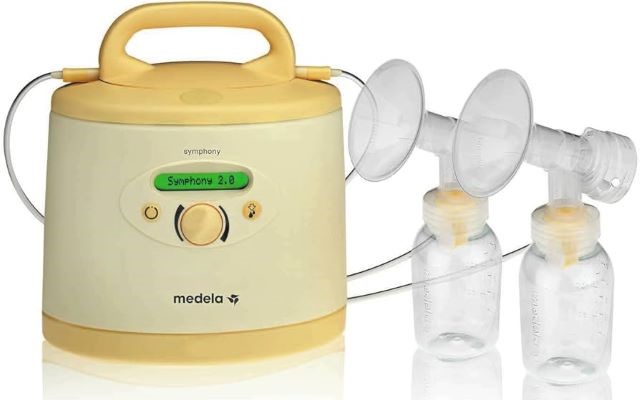Products You May Like
Breastfeeding is known for its myriad of benefits for both mothers and their infants, and recent research from the CDC emphasizes this fact, showcasing the role of breast milk in providing ideal nutrition and promoting healthy development. Particularly interesting is the discovery that breast pumping can extend the advantages of breastfeeding, as highlighted by a study conducted by the Yale School of Medicine. This research found that individuals who engage in using breast pumps tend to provide breast milk for an average of 21 weeks longer compared to those who rely solely on direct breastfeeding.
Organizations like the American Academy of Pediatrics and the World Health Organization encourage breastfeeding, suggesting it should continue for at least two years when possible. Dr. Janelle Ferry, a respected neonatologist, advocates for both breastfeeding and pumping while reminding parents to be kind to themselves in their feeding choices. She notes that while formula is a safe and effective alternative, breast milk possesses unique benefits that formula cannot replicate. Importantly, she reassures parents that any amount of breast milk, even when supplemented with formula, can be advantageous for their baby’s health.
The study led by Dr. Deanna Nardella utilized data from nearly 20,000 lactating individuals between 2016 and 2021, focusing on the impact of pump use on breastfeeding duration. The data revealed that around 91% of the participants employed breast pumps, and those who did so breastfed for an average of 21 weeks longer than non-pump users. Moreover, it was found that pumping correlated with a 37% reduction in the likelihood of stopping breastfeeding, particularly among non-Hispanic Black and Native American parents, demographics that often report lower breastfeeding rates.
Despite the growing trend of pump usage over the past decade, Dr. Nardella points out that the specific effects of pumping on breastfeeding outcomes have not been well understood until now. Through their study, the researchers aimed to illuminate these relationships, showcasing the potential benefits of incorporating pumping into the breastfeeding journey.
Though the study indicates a strong connection between breast pumping and extended breastfeeding, Dr. Nardella cautions that it does not definitively establish causation. Nonetheless, the hope is that these findings will inspire increased awareness and encourage parents to take advantage of insurance coverage for breast pumps, thus aiding them in their breastfeeding endeavors.
As discussions surrounding infant feeding continue to evolve, it is vital to highlight the importance of flexibility and support for all parents. The information coming from this study serves as a valuable resource as it reinforces the significance of breastfeeding and pumping in providing the best nutrition for infants while also fostering a healthy and supportive environment for parents as they navigate their feeding choices.
In conclusion, the benefits of breastfeeding are clear, and integrating pumping into the routine presents an effective pathway for extending these advantages, ensuring that both mothers and their babies thrive during these crucial early years.

GIPHY App Key not set. Please check settings